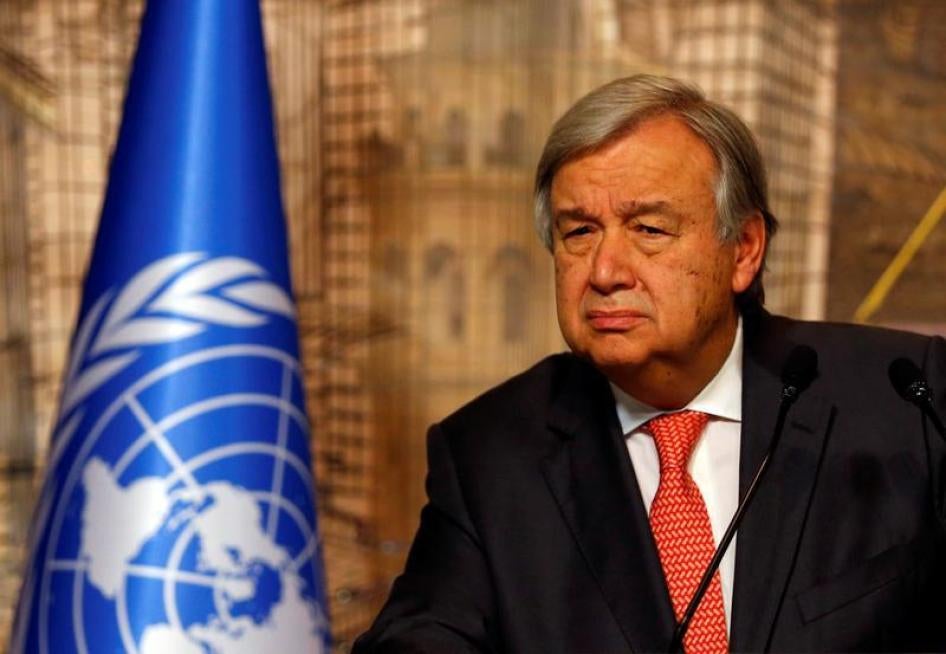Within days of assuming office, United Nations Secretary-General Antonio Guterres has personally taken on one of the trickiest issues facing his organization: cases where people who sought help from the UN ended up being sexually abused or exploited by UN staff and peacekeepers.
This week, Guterres announced that he would “put victim rights and dignity first.” He’s pledged to meet personally with victims to hear their experiences.
Guterres pledged the UN will appoint a human rights expert, tasked with advocating for victim’s rights, to serve in his office and report to him. His new
plan also asks UN peacekeeping missions in the Central African Republic, the Democratic Republic of the Congo, Haiti, and South Sudan – all countries where peacekeepers have been accused of raping women under their protection – to appoint victims’ rights advocates on the ground. These local advocates, together with the high-level attention of an expert in Guterres’ office, could finally prompt accountability for abusers and support for victims.
Human Rights Watch research in the Central African Republic shows the lack of support or access to justice victims of sexual exploitation have when peacekeepers are the victimizers. This was echoed in the UN’s
own assessment: “very few victims have been assisted due to lack of dedicated funding and the slow enforcement process.”
Under the new plan, the UN will bolster a
Trust Fund for Victims of Sexual Exploitation and Abuse. This fund was set up last year but has
only collected US$436,000 from five member countries: Bhutan, Cyprus, India, Japan, and Norway. It needs more support. Guterres has suggested boosting the trust fund by withholding funds for troop-contributing countries that don’t investigate allegations of abuse by their troops, then transferring that money to victims.
The UN will also need to revise the trust’s rules to allow direct assistance payments that would enable victims to attend trials. Right now, the trust fund can’t be used to provide compensation to victims. For too long, governments have had little incentive to prosecute their own soldiers and policemen for crimes they commit abroad. The threat of handing over money otherwise intended for them to the victims’ trust fund might be a crucial piece of that puzzle.
Bolstering the trust fund and giving victims their own UN advocates are steps in the right direction. The focus is now on governments to hold abusers to account and demonstrate their willingness to punish perpetrators – something they have often shied away from – and put the victims’ interests first.









